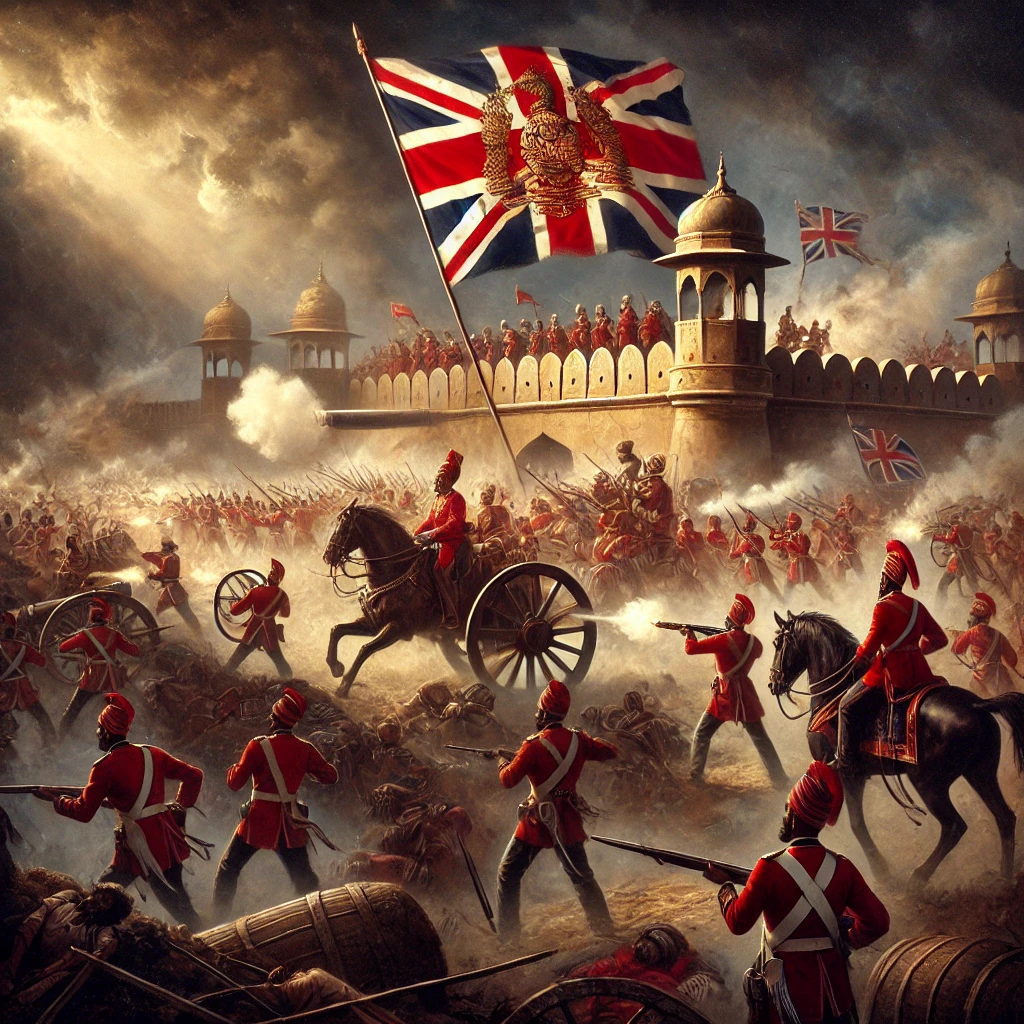On December 31st, 1600, Queen Elizabeth I granted a royal charter to the British East India Company, marking the beginning of a new era in global trade and imperialism. The charter gave the company exclusive rights to trade with the East Indies (Southeast Asia), and later extended its influence to the Indian subcontinent and China. The formation of the British East India Company was a pivotal moment in the history of British colonial expansion and set the stage for the creation of the British Empire in Asia.

The Formation and Early Years
The British East India Company was founded by a group of English merchants seeking to capitalize on the lucrative spice trade and other goods from Asia. At the time, European nations were engaged in fierce competition for control over global trade routes. Spain and Portugal had already established dominance in the East, but the British were eager to break into the market. With the blessing of Queen Elizabeth I, the company was granted a monopoly on trade with the East Indies, and its first ships set sail to Asia in search of wealth and resources.
The company initially focused on trading spices, silk, and tea, but it soon expanded into other lucrative goods. As it grew in power, the company not only dominated the trade in the East but also began to wield significant political and military influence. It established trading posts and forts in key locations, including India, where it began to exert control over local rulers and establish its own administrative systems. Over the course of the 17th and 18th centuries, the British East India Company became an essential arm of British imperialism.

The Company’s Influence and Expansion
The British East India Company’s influence in Asia expanded rapidly throughout the 17th and 18th centuries, and it soon became a powerful force both economically and politically. The company played a major role in British colonial rule in India, where it controlled vast territories, built an army, and governed millions of people. It became a symbol of British power, with its private army often clashing with local rulers in India and elsewhere.
The company’s success in the East was driven by its ability to establish trade monopolies, its access to military power, and its ability to influence local politics. Its involvement in India grew more significant over time, culminating in the British colonization of the subcontinent. The company’s exploits were not without controversy, however. The exploitation of Indian resources, the expansion of British control, and the company’s role in suppressing uprisings, like the Indian Rebellion of 1857, left a legacy of tension and resentment that continues to shape India’s relationship with Britain today.
The Legacy of the British East India Company
The British East India Company was formally dissolved in 1874, but its impact on global history remains profound. It played a major role in the establishment of the British Empire in Asia, helping to shape the geopolitical landscape of the region for centuries. Its legacy is evident in the enduring influence of British colonialism in India, Southeast Asia, and beyond. The company’s dominance over trade and its political power left lasting imprints on the countries it interacted with, influencing not only their economies but their cultures and social structures.
While the British East India Company’s actions were often marked by violence and exploitation, it also contributed to the global exchange of goods, ideas, and cultures. Its role in the spread of European influence and the global trade networks of the 18th and 19th centuries cannot be overstated. Today, the legacy of the British East India Company serves as a reminder of the complexities of colonialism, the dynamics of global trade, and the long-lasting effects of imperialism.

The British East India Company’s formation on December 31st, 1600, marks a key turning point in the history of trade, colonialism, and imperialism. The company’s monopoly on trade with the East Indies laid the foundation for British dominance in Asia and helped shape the trajectory of British power for centuries. Its legacy is still felt today, with the lasting impact of British colonialism in India and beyond. The British East India Company’s history remains an essential chapter in the broader story of global trade and imperialism, underscoring the complexities of power, wealth, and cultural exchange throughout history.
